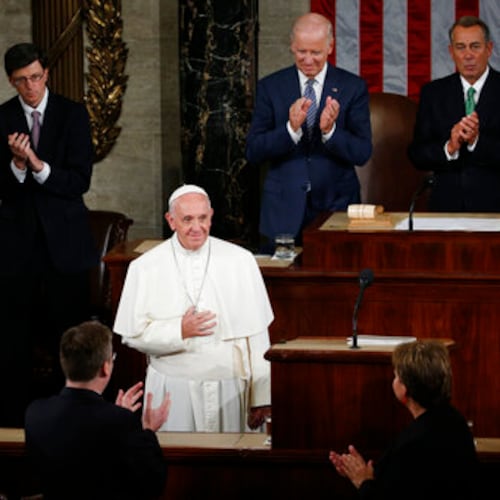John Barrow, a former U.S. congressman and the runner-up in last year's secretary of state race, entered the contest Monday to run for an open Georgia Supreme Court seat.
The Harvard-trained attorney said he was running to succeed retiring Justice Robert Benham, the only remaining member of the bench appointed by a Democratic governor, “to offer my experience to help maintain the kind of balance we want in our Supreme Court.”
The race, which will be decided in the May 2020 primary, is a nonpartisan contest. But it seems assured to take on decidedly partisan undertones.
Barrow was the last white Democrat to hold a seat in the U.S. House seat in the Deep South before his 2014 defeat, where he built a reputation as a centrist who bucked his party's line on gun rights issues and tax policies.
He brought a similar approach to last year’s contest to be the state’s top elections official, pledging to end gerrymandering and to curtail broad cancellations of voter registrations while steering clear of divisive debates not related to elections.
Barrow forced the race against Republican Brad Raffensperger into a runoff in November, and lost in December by about 4 percentage points. Since then, the legal community has been abuzz with word that Barrow would run for the state's top court.
Another contender, Appeals Court Judge Sara Doyle, beat him to the punch. She filed paperwork last week to run for the seat. First elected to the appellate court in 2008, Doyle benefited from help from influential Republican attorneys but has carved out a centrist judicial record.
Doyle would only be the second woman on the nine-justice court if she wins the seat. The other is Justice Sarah Warren, a recent appointee by Gov. Nathan Deal who filed paperwork to run for a full six-year term.
Barrow’s announcement came with some firepower. His campaign will be chaired by Stacey Evans, the former Democratic gubernatorial candidate. His treasurer is Pete Robinson, the former lawmaker and current lobbyist who was Deal’s pick to lead the Judicial Nomination Commission.
The field, though, is not yet set.
Benham, who became the first African-American to serve on the state’s top court when Joe Frank Harris appointed him in 1989, is one of only two black members of the nine-justice bench. And court-watchers expect an African-American candidate to join the contest to replace him.
About the Author
Keep Reading
The Latest
Featured




